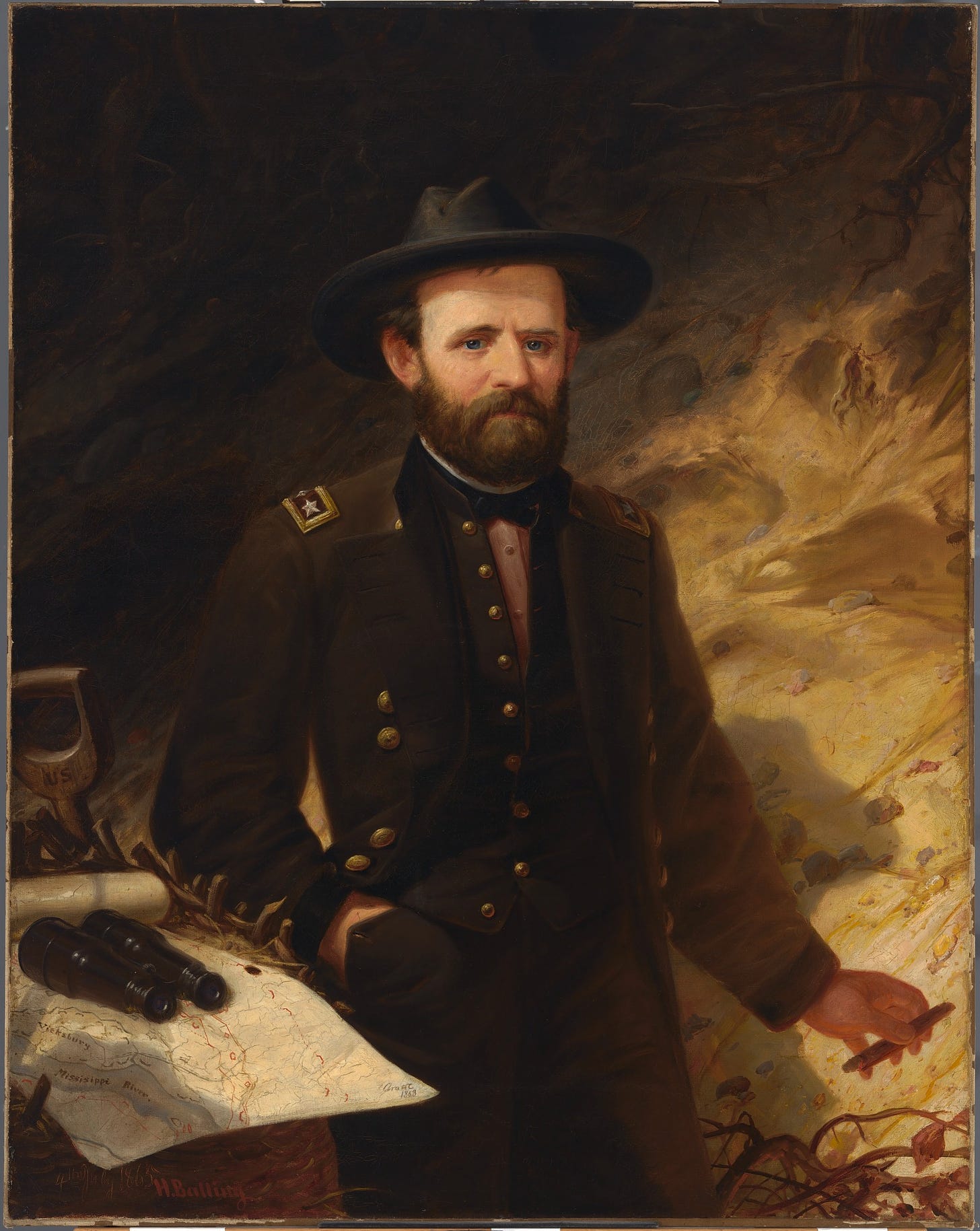Tomorrow is Ulysses S. Grant’s 200th birthday. This bicentennial milestone is being recognized at a number of historic sites across the country, including the General Grant National Memorial in New York City and Grant’s home at White Haven in Missouri. It is entirely appropriate that the nation take this moment to commemorate Grant on this day.
Grant has certainly enjoyed a resurgence of interest among historians and the general public in recent decades. A number of very good scholarly and popular histories have been written and Grant has either been featured prominently or been the focus himself of numerous documentaries. [Stay tuned tomorrow for my top 5 list of Grant books.]
In some ways he has come to overshadow Robert E. Lee and even a public memory of the war that once dismissed Grant in favor of a more nostalgic and romantic Lost Cause-inspired narrative.
The shift in public memory away from the Lost Cause was clearly discernible during the Civil War 150th commemoration between 2011 and 2015, but it has certainly accelerated in recent years owing to events on the racial front and the nation’s reckoning with symbols of the Confederacy in prominent public spaces.
Many of the most important institutions that organized events during this period made a conscious distinction between commemoration and celebration—the latter tending to easily into the territory of myth.
The sesquicentennial was not going to repeat some of the mistakes of the Civil War centennial, which was heavily influenced by a reconciliationist and Lost Cause narrative. This was especially true for the Virginia sesquicentennial commission, which led the way with a wide range of events and educational programs.
We are in a place now where a balanced commemoration of Grant and the events with which he helped to shape can be more carefully considered than at any other previous moment. This is, in part, because the public is more willing to engage in the tough questions related to the history of slavery, emancipation, Reconstruction, westward expansion, and the displacement of Native Americans.
We can recognize Grant, according to historian Joan Waugh, “as a general who saved the Union and as a steadfast and essential president who both championed civil rights and made sure that the United States stayed together.” At the same time we must also come to terms with the violence of the war, the complicated way in which emancipation and the end of slavery came, the limits of Reconstruction, and the war’s impact on Native Americans.
It looks like this is, in fact, what we have already seen at various commemorative events for Grant this year and what we will see again tomorrow.
Happy birthday, President Grant.





I'm glad to celebrate his birthday. I admire Grant very much.
Thank you for your balanced assessment. His intent, if not always his judgement, was good.